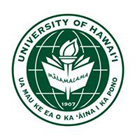- News and articles
- Find usIDP AustraliaIDP BahrainIDP BangladeshIDP CambodiaIDP CanadaIDP ChinaIDP EgyptIDP GhanaIDP Hong KongIDP IndiaIDP IndonesiaIDP IranIDP JordanIDP KenyaIDP KoreaIDP KuwaitIDP LebanonIDP MalaysiaIDP MauritiusIDP Middle EastIDP NepalIDP New ZealandIDP NigeriaIDP OmanIDP PakistanIDP PhilippinesIDP Saudi ArabiaIDP SingaporeIDP Sri LankaIDP Taiwan, ChinaIDP ThailandIDP TurkeyIDP UAEIDP VietnamIDP Corporate
- Social
- English
- Where we operate
- Courses
- Scholarships
- IELTS
- About IDP
- Student Essentials
- News and articles
- Find us
- Find us
- Find nearest IDP offices
- IDP Australia
- IDP Bahrain
- IDP Bangladesh
- IDP Cambodia
- IDP Canada
- IDP China
- IDP Egypt
- IDP Ghana
- IDP Hong Kong
- IDP India
- IDP Indonesia
- IDP Iran
- IDP Jordan
- IDP Kenya
- IDP Korea
- IDP Kuwait
- IDP Lebanon
- IDP Malaysia
- IDP Mauritius
- IDP Middle East
- IDP Nepal
- IDP New Zealand
- IDP Nigeria
- IDP Oman
- IDP Pakistan
- IDP Philippines
- IDP Saudi Arabia
- IDP Singapore
- IDP Sri Lanka
- IDP Taiwan, China
- IDP Thailand
- IDP Turkey
- IDP UAE
- IDP Vietnam
- IDP Corporate
- Social
- Language Switcher
- IDP Education /
- Colleges and Universities /
- United States /
- University of Hawaii - Manoa /
- Master of Arts in Second La...


Location
United States
Qualification
Masters Degree
Fees
USD33648
(2025)
Duration
4 Semester(s)
Next intake
22 August 2025
Entry Score
7.0
IELTSCourse info
Knowledge Base of Second Language Studies. Our graduates will develop familiarity with topics and concepts fundamental to the broad knowledge base of the field of Second Language Studies, including: (a) the scope of issues and methods in applied linguistics, (b) linguistic analysis, (c) second language acquisition, and (c) sociolinguistics. They will also understand how their own interests in SLS relate to the larger academic, educational, and sociopolitical contexts of the discipline.
Utilization of research. Our graduates will be able to access, understand, and critically evaluate the current SLS research literature and engage in systematic investigation of topics and concepts in the SLS knowledge base to inform their own and others' professional practices.
Professionalism. Our graduates will acquire the disposition to continue professional development for the duration of their careers, seeking increased knowledge of themselves and the discipline while remaining flexible and open to change. To do so, they will acquire the skills to communicate and interact effectively with their colleagues, in order to promote effective and ethical professional environments. In addition, our graduates will be able to communicate skillfully about their SLS work, both orally (e.g., at work or professional meetings) and in writing (e.g., through in-house reports and/or articles in professional newsletters and journals).
For students pursuing one of the five MA in SLS tracks, additional learning outcomes are associated with each.
The program strives to maintain a balance between theoretical and practical concerns by requiring courses that are concerned with linguistic, psychological and sociocultural aspects of language as well as those which treat the methodological and practical aspects of language learning and teaching. By stressing the interdependence of theory and practice, we cultivate in our students the intellectual basis for an understanding of principles that will help guide them in their future careers.
Graduates of the MA program are able to assume key positions in a number of areas of applied linguistics, including teaching (both public and private sectors in the United States and abroad), teacher education, administration, research, evaluation, and materials writing. A substantial number of students have continued their graduate training in doctoral programs.
- Scholarships
- Internships
Entry requirements for University of Hawaii - Manoa
Application Deadline
The application deadline isn't available Speak to an IDP counsellor for more detailed information
Further information
If you aren't eligible for the above entry requirements, you might ant to explore pathway options at University of Hawaii - Manoa. If you want to find out more, speak to our counsellors.
THE World Ranking
251st / 1250
THE World RankingWhat our students think
We’ve haven’t received any reviews for this institution yet.
Recommended for you
- THE World Ranking:90
- Graduate Certificate
- Irvine , United States
- Next intake:09/2025
- Entry Score: IELTS 6.0
- USD40203 (2025)
- Graduate Certificate
- Hempstead , United States
- Next intake:09/2025
- Entry Score: IELTS 6.5
- USD30510 (2025)
- Graduate Certificate
- Hempstead , United States
- Next intake:05/2025
- Entry Score: IELTS 6.5
- USD27180 (2025)
- Graduate Certificate
- Hempstead , United States
- Next intake:05/2025
- Entry Score: IELTS 6.5
- USD27180 (2025)
- Graduate Certificate
- Hempstead , United States
- Next intake:05/2025
- Entry Score: IELTS 6.5
- Graduate Certificate
- Hempstead , United States
- Next intake:09/2025
- Entry Score: IELTS 6.5
- USD30510 (2025)
- Graduate Certificate
- Hempstead , United States
- Next intake:09/2025
- Entry Score: IELTS 6.5
- USD30510 (2025)
- Graduate Certificate
- Hempstead , United States
- Next intake:09/2025
- Entry Score: IELTS 6.5
- USD30510 (2025)
Your action plan
Step 1
Shortlist your courses
Choose the best three courses you’re most likely to pursue.
Step 2
Check your eligibility
Get an instant in-principle offer for courses with the IDP FastLane tag.
Step 3
Apply through IDP Live
Fill out the form once and use it to apply to multiple courses.
How does IDP FastLane work?
With the FastLane 'Offer in Principle', you'll know in minutes if you'll be accepted!
Select an institution and course
Create your academic profile
Submit your application for an 'Offer in Principle'
Your chosen institution(s) will send you a decision in minutes!
Get ready to apply with an expert counsellor




